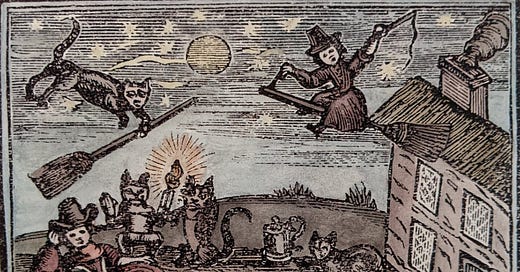'Childless cat ladies...is that a bad thing?'
How the trope was born; and is there any truth in it?
According to Republican vice-presidential nominee JD Vance, back in a 2021 interview, senior Democrats are famously ‘a bunch of childless cat ladies who are miserable at their own lives and the choices that they’ve made and so they want to make the rest of the country miserable too.’ Left-wing women in the US and beyond have responded to Vance’s intended insult with some delight and many pro-childless-cat-lady internet memes. ‘Childless cat ladies?...is that a bad thing, I’m confused?’ tweeted one woman, with an implicit wink.
I’m not childless, but I am husband-less, left-wing and admittedly often quite miserable and lonely. And I am definitely a cat-lady - and, like the woman mentioned above, I see that as a strength rather than weakness. So the cultural historian in me started wondering when being a childless cat lady first became, not just ‘a thing’, but apparently ‘a bad thing’. And the cat-lover (ailurophile, apparently) in me started wondering if there’s any truth in the trope; not in the notion that being childless or alone or left-wing automatically connotes misery for women, but in the idea that sad women might have a propensity towards cat-ownership. I wonder whether what’s being ridiculed in the ‘crazy cat lady’ trope is actually a meaningful pattern in which women who have been hurt by the world find healing through contact with animals.



